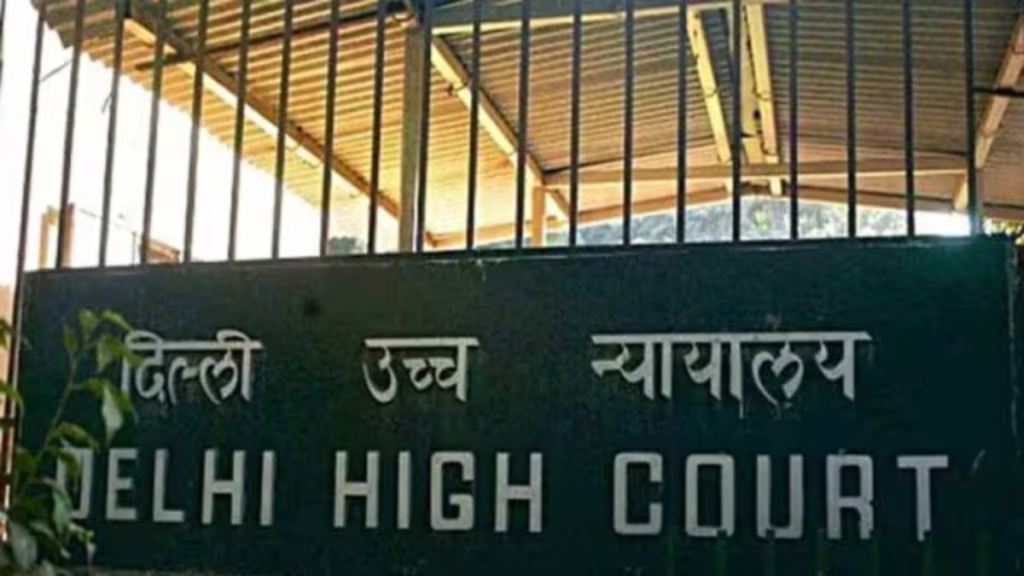CLAT 2025 exam has been at the eye of a judicial storm following a spate of petitions against the authenticity of its results, based on the undergraduate (UG) stream. On April 9, 2025, the Delhi High Court reserved its order in a batch of petitions that challenged the correctness and fairness of the CLAT 2025 exam results for UG candidates. The petitions claim gross discrepancies in the questions and answer keys of the national law entrance test, which led to a serious judicial scrutiny of the issue.
Who Is Hearing the CLAT 2025 UG Petitions in the Delhi High Court?
A division bench comprising Chief Justice Devendra Kumar Upadhyaya and Justice Tushar Rao Gedela heard the case, stressing the need to decide the issue quickly, particularly because the outcome has serious implications for law aspirants looking to get admitted into top National Law Universities (NLUs) in India. The bench clarified that although it is keen to wrap up the UG-related hearings at the earliest, the pleas contesting the merits of the CLAT 2025 exam results for the postgraduate (PG) program would be heard separately on April 21, 2025.
The CLAT 2025 examination, which was on December 1, 2024, and organized by the Consortium of National Law Universities, is one of the most significant entrance examinations for seeking admission into India’s top law schools. The results had been declared on December 7, 2024. The results, however, soon came under controversy as several candidates and lawyers raised eyebrows over supposed mistakes in the answer key and question framing. This resulted in a spate of petitions being moved in different High Courts all over the nation.
The Supreme Court, in a previous order, ordered all pending CLAT 2025 exam-related cases to be transferred to the Delhi High Court to prevent conflicting judgments from different benches. Though the top court initially thought of re-transferring the case to the Punjab and Haryana High Court where the initial petition was moved, the Consortium of NLUs filed that the case be consolidated and heard either by the Supreme Court itself or be allotted to one High Court. The Delhi High Court was finally selected as the forum to hear all such cases together.
In the April 9 hearing, the Delhi High Court examined certain questions of the CLAT 2025 exam, especially those raised for their unclear phrasing or wrong answers. One such question was a verbal reasoning passage on homelessness, which, as per the bench, had conflicting views from subject matter experts. Interestingly, even the Consortium’s own senior advocate, Rajshekhar Rao, admitted there were errors in one of the questioned questions and suggested its exclusion from the scoring process altogether. The court concurred, asserting that the question must indeed be scrapped because it was poorly constructed.
The row started gaining steam after a single-judge bench of the Delhi High Court delivered a judgment on December 20, 2024. The court had ordered the Consortium of NLUs to rework the CLAT 2025 exam results, finding that at least two questions had wrong answers in the official answer key. The petitioners asked not just the correction of the mistakes but also a direction to release a corrected result sheet. The single-judge decision was in the favor of the petitioners and directed the Consortium to take corrective action.
The Consortium reacted to the decision by arguing that the answer key had been prepared by experts and should not be subjected to judicial discretion. They also argued that one judge shouldn’t overrule the academic autonomy of the Consortium. A two-judge bench of the Delhi High Court overruled those objections, discovering no prima facie fault with the previous judgement and declining to grant interim relief. The court upheld the solitary-judge judgement and demanded the results be made public in consonance with that directive.

CLAT 2025 exam: Will this legal strife impact admissions to NLUs across the country?
This is an urgent concern on the minds of thousands of applicants who sat for the CLAT 2025 exam. With admissions to law schools riding on these outcomes, the legal cases going on have created uncertainty in the process. A number of candidates fear that undue delays in declaration of results, or other judicial interventions, may impact counseling, seat allocation, and the beginning of the academic year.
Joining the seriousness of the issue, the Delhi High Court earlier instructed the Consortium of NLUs to be more careful in the future by hiring more efficient paper setters. The court feared that repeated errors in national-level exams such as the CLAT 2025 exam might jeopardize the integrity of the selection process. The judges added “Although judges’ control in matters academic is usually circumscribed, flagrant errors such as those indicated in the present case cannot be left unattended.”.
The legal fight over the CLAT 2025 exam has also highlighted the larger issue of accountability and transparency in entrance tests. Candidates and legal professionals have contended that organizations running such vital tests have to ensure quality control measures. This case has the potential to establish a precedent for the way exam boards handle flaws and problems in high-stakes competitive exams.
Although the Delhi High Court has reserved judgment on the petitions relating to UG, the focus now shifts to April 21, when the court will hear the petitions against the CLAT 2025 exam results for the postgraduate stream. For thousands of students, the judgments of the court in these cases will decide the course of their legal careers.
Pending the court’s verdict, eyes are still set on the Delhi High Court to deliver a ruling that seeks both legal integrity and scholastic justice.
ALSO READ
Delhi HC Bench on CLAT UG 2025 states that there is urgency in regards to UG.
Pingback: CLAT 2025 HEARING